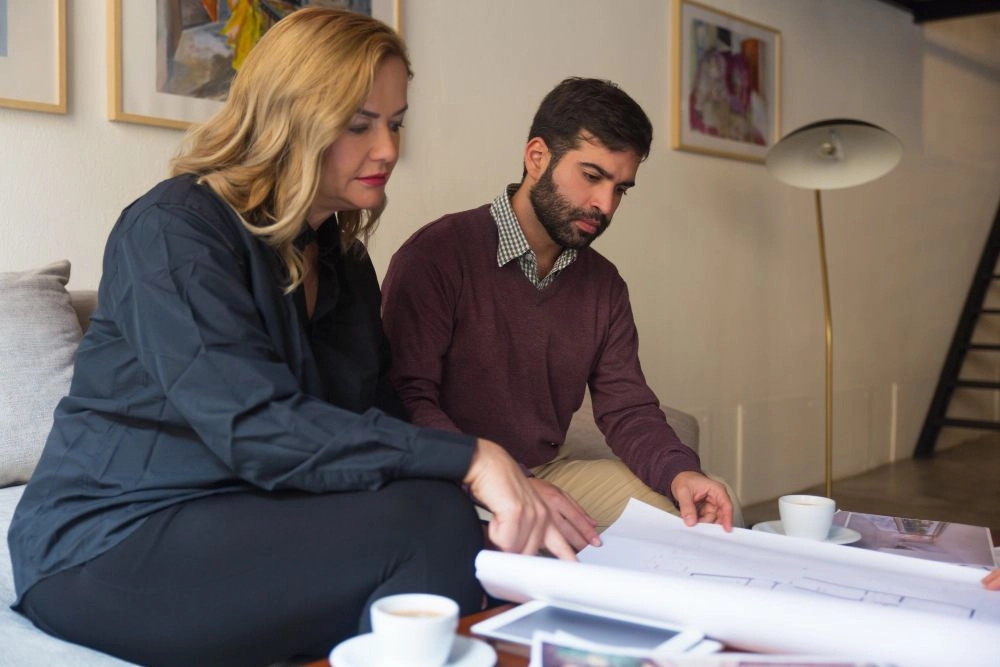
Utilities Checklist For First Time Buyers
For first-time buyers, moving into your first home is an exciting milestone. However, it's also a busy time filled with many important steps to ensure you're fully settled in your new house.
One of the crucial tasks to tackle is setting up utilities in your home. This includes ensuring that you have heating, water, gas, electricity, and internet access. Below, we outline the essential utilities you'll need to arrange for your new home. We also provide an overview of average costs and offer some valuable tips on improving energy efficiency.
What Utilities Do I Need to Set Up as a First-Time Buyer?
Gas
Electric
Water
Broadband
Council Tax
TV Licence
Before You Move
If you're renting a property, it's important to inform your utility suppliers that you're moving. It's recommended to give at least 48 hours' notice and provide your forwarding address to ensure a smooth transition.
Be sure to take meter readings for gas and electricity before you leave, so you aren't charged for energy you haven’t used.
If you've been living with family or at a location where you haven’t been responsible for utilities, now is the perfect time to start researching utility suppliers and explore available deals.
Setting Up Gas and Electricity for the First Time
Below we look at the steps to setting up Gas and Electric as a first-time buyer, ensuring you have heat and light in your new home.
Find Out Who the Existing Suppliers Are
You can find out who the current utility supplier is by referring to the seller's Property Information Form TA6, which is provided during the conveyancing process.
Alternatively, you can use the "Find My Supplier" service to discover the energy company supplying your new home. This service helps you identify your gas supplier, your Meter Point Reference Number (MPRN), and your gas transporter.
Decide Which Supplier to Use
As mentioned earlier, the first step is to research which energy company you'd like to supply your new home. For convenience, you might consider sticking with the current supplier already providing service to the property.
If you were renting previously, you can transfer your existing contract to your new home. However, keep in mind that switching energy suppliers from your current provider could involve exit fees.
For more details on how to switch energy suppliers when moving, check out: Changing Gas and Electricty When Moving House,
Take a Meter Reading
When you get into the home, make sure you take a meter reading. This ensures you do not pay for energy you haven’t used in the home.
Other Aspects You Should Check
Is the meter pre-pay or a smart meter?
Find the fuse box and trip switch
Find your meter number
Look at the current tariff
How to Keep Energy Costs Down
Buying your first home can be a costly process, so it’s important to keep expenses low wherever possible. With energy prices on the rise, you'll also want to explore tips and strategies to reduce your energy costs.
Keeping your home well-insulated is essential, especially during the winter months. There are several ways you can do this, all of which will make the home more energy efficient. They include:
Ensuring cladding is well laid in the attic
Installing shutters and/or putting up thick curtains across the windows
Hanging a thick curtain across the front door
Ensuring windows are sealed properly and the double glazing hasn’t failed. For maximum efficiency, you may want to replace old windows
Use radiator panels to reflect heat into the room
Use draft stoppers at the bottom of doors
Putting down rugs on hardwood or tiled floors
Upgrade your boiler if it is more than 10 years old
Bleed any radiators which are not heating effectively
Make sure furniture (such as a sofa) is not blocking the radiators
Take showers rather than baths where possible
Use low-energy LED bulbs
How Much are Utilities for a First-Time Buyer?
How much your utilities are will depend on a few factors. These include where you live, the size of your home, how many people live in the property and how much energy you use.
Below we break down each cost and look at the average you can expect to pay:
Gas and Electric
The cost of gas and electricity saw a significant increase in 2022. According to the BBC, the average energy bill in October 2021 was £1,400, but by April 2022, it had jumped to £2,000, with further increases expected. Your energy costs will vary depending on your provider and whether you're on a fixed-rate or variable tariff.
Water
The average water bill in the UK rose to £419 in 2022 This will depend on your location and who your water provider is.
Broadband
A recent study by Cable.com revealed that Brits spend an average of £30.30 per month on their broadband bills. This amount can vary depending on the provider and may increase due to rising costs.
With more people working remotely, updating or changing your broadband service when moving house is crucial for many households. If you’ve been renting and already have an existing contract, you can request to transfer it to your new home. Otherwise, you’ll need to set up a new broadband service at your new property.
Council Tax
You will need to pay council tax for the area where you live. This helps councils pay for the services they provide. It covers things like waste collection, street lighting, road repairs and so on.
How much you pay will depend on which band your house is in. If you like alone, you can apply for a 25% reduction on your council tax.
For more information read: Council Tax When Moving House.
TV License
The cost for a TV license for the year is £159 (free for those over 75). You could face fines of up to £1,000 if you do not pay your TV License fee.
Setting Up Utilities in a New Build
Building developers will often appoint gas and electricity suppliers during the house-building process. When you move into the home, you can either choose to keep the same supplier or switch.
New builds will usually have smart meters installed. These will send meter readings to your supplier.

